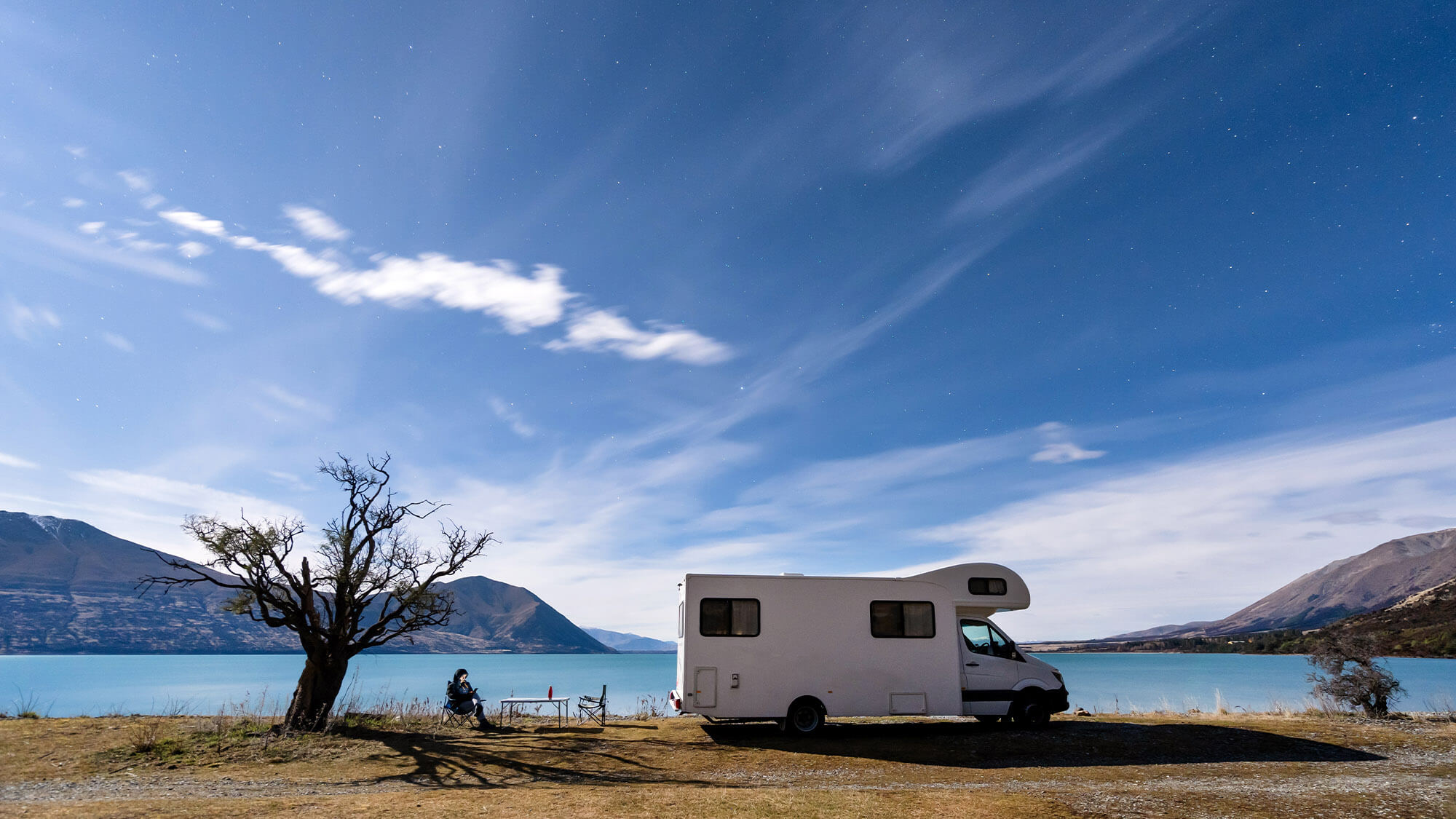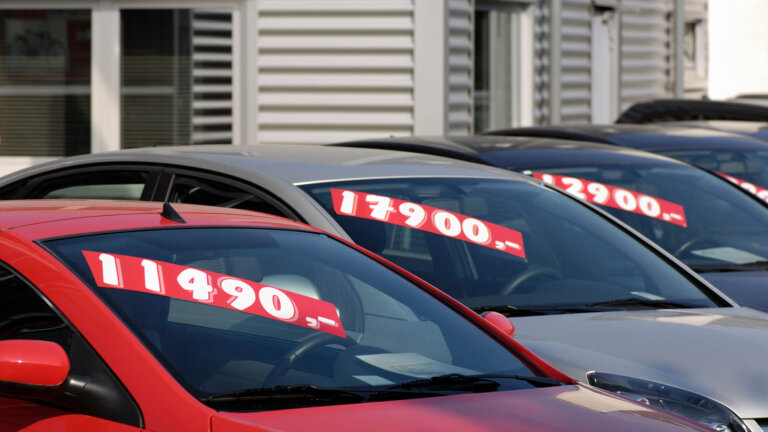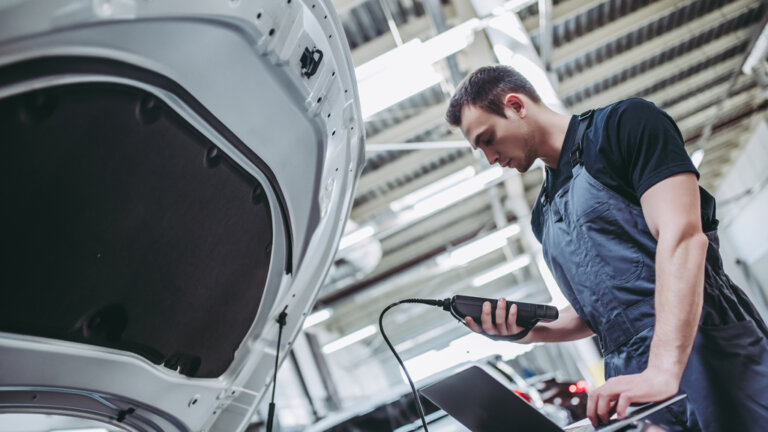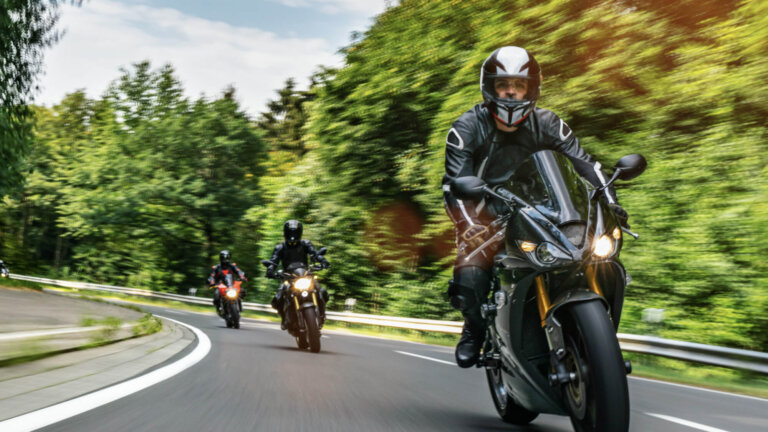Pour fuir la routine et trouver l’aventure au coin de la rue, les camping-cars n’ont pas leur pareil. Grâce à eux, il est facile de conjuguer liberté, découvertes et confort. Autre atout majeur, les camping-cars se déclinent selon les désirs de chacun. Pour 2 jours ou 2 mois, en mode luxe ou minimaliste, avec la famille ou en amoureux, ça roule comme vous voulez ! Tenté par l’expérience ? Voici quelques conseils pour profiter au mieux de votre voyage.

Quel camping-car choisir ?
Il existe plusieurs types de camping-cars, qu’on pourrait résumer à deux grandes catégories :
- Les camping-cars traditionnels (intégral, profilé) : spacieux et confortables, ils conviennent aux grandes familles. Plus encombrants, ils trouveront plus facilement leur place dans les campings et aires dédiées aux camping-cars.
- Les fourgons et vans aménagés : les modèles à toit relevable (les fameux vans VW) ou traditionnels (généralement des maxi fourgons comme le Fiat Ducato ou Citroën Jumper), aménagés par soi-même ou de série. Plus petits, ils sont plus faciles à manier et rassurent souvent les néophytes. Ils sont aussi plus discrets, ce qui est pratique pour voyager hors de sentiers battus.
Trouver vos marques pour une conduite sans risque
L’habituel permis B suffit pour conduire un camping-car traditionnel ou un fourgon aménagé, à condition que la masse maximale autorisée (MMA) soit inférieure à 3,5 tonnes. Si la MMA est comprise entre 3,5 et 7,5 tonnes, alors il vous faudra un permis de conduire C1.
Plutôt impressionnant par son volume, les sensations de conduite du camping-car sont tout de même proches de celles d’une voiture. C’est donc à votre portée, encore plus en suivant ces quelques conseils pour préparer votre première sortie :
- Gardez bien en tête les dimensions de votre véhicule. La largeur pour les zones étroites, la longueur pour les dépassements et bien sûr la hauteur pour les tunnels et autres portiques. Souvent, vous pouvez compter sur une signalisation qui vous avertit… mais pas toujours ! Les branches d’arbres, balcons et autres obstacles hauts peuvent aussi vous surprendre et causer des dégâts.
- Soyez prudents pour les virages et les manœuvres. Les virages étroits doivent être pris plus larges pour que les roues ne touchent pas le trottoir.Les camping-cars vous imposent de gérer les manœuvres sans rétroviseur arrière. Certains sont équipés d’une caméra de recul. A défaut, demandez à un passager de sortir vous guider. La distance entre les roues arrière et le pare-chocs est plus longue que sur une voiture, les indications de la caméra ou de votre guide seront précieuses pour vous garer. Quelques exercices avant votre premier voyage devraient bien aider aussi.
- Anticipez le freinage. Plus lourd, vous aurez besoin d’une plus longue distance pour vous arrêter. En plus d’allonger les distances de sécurité, anticipez aussi les comportements des autres conducteurs et les obstacles. Soyez particulièrement lent en passant les dos d’ânes pour éviter de toucher le châssis ou le pot d’échappement.
- Méfiez-vous du vent. Qui dit hauteur dit prise au vent. Le véhicule risque de vaciller en croisant un camion ou lorsqu’il y a du vent. Adaptez votre vitesse aux conditions climatiques.
- Restez vigilant. C’est souvent après quelques jours de route que les premiers accidents ont lieu, quand on a gagné en confiance et baissé sa garde.
La sécurité ne concerne pas que le conducteur mais aussi ses passagers :
- Chacun doit être assis, ceinture bouclée (pas question de profiter d’un long trajet pour trainer au fond du lit).
- À l’avant, le passager s’abstient de poser ses pieds sur le tableau de bord : en cas de freinage d’urgence ou d’un accident, ce comportement peut avoir de graves conséquences.
Bien préparer votre voyage
Quelles sont les variations du code de la route ?
Les règles de conduites varient d’un pays à l’autre au sein de l’Union Européenne. Un coup d’œil sur le site « A l’étranger » vous permet de vous mettre rapidement à jour et d’éviter les amendes.
Choisir le lieu des étapes
Partisan de la planification ou adepte de l’impro, vous gagnerez à anticiper vos nuits pour éviter les mauvaises surprises.
Pour vous garer, les règles de stationnement sont les mêmes que pour les autres véhicules. Mais cela ne vous donner pas le droit de camper n’importe où. Autrement dit, OK pour s’arrêter (y compris pour une nuit) mais pas question de sortir ses cales, son auvent et son mobilier. Cela dit, ce ne sont pas les possibilités qui manquent pour camper :
- l’aire de service gratuite (elles sont largement répertoriées, notamment pour le Luxembourg),
- les campings avec zone aménagée pour les camping-cars,
- les réseaux spécifiques comme Camping Car Park.
Ces trois types de lieux ont l’avantage d’être équipés pour faire la vidange de votre camping-car (toilettes et eaux usées).
Pour ceux qui ont envie de sortir des sentiers battus, pensez aussi :
- à tous les endroits sympas où il est permis de stationner une nuit, repris sur l’incontournable app Park4night,
- à l’habitant : avec la plateforme HomeCamper, les particuliers mettent à disposition leur jardin pour une ou plusieurs nuits.
Les vérifications avant de partir
- Assurez-vous de ne pas dépasser la capacité de chargement du véhicule. On l’appelle aussi la charge utile, elle est renseignée sur le certificat d’immatriculation et varie d’un camping-car à l’autre. Elle représente le plafond pour comptabiliser les passagers, les bagages et les équipements optionnels du camping-car (marquise, toit ouvrant, …).
- En plus des habituelles vérifications (huile, liquide de frein, liquide de refroidissement), soyez particulièrement attentif à la pression et à l’usure des pneus. Ceux-ci seront nettement plus sollicités qu’avec votre voiture habituelle. Alors comptez 4,5 à 5,5 barres, optez pour un gonflage à l’azote plutôt qu’à l’oxygène et prévoyez des valves métalliques.
- Le chargement est bien réparti : évitez de déséquilibrer le véhicule sur un côté, à l’avant ou à l’arrière. Vous gagnerez ainsi en stabilité et limiterez l’usure des pneus.
- Tout est bien rangé et sécurisé : quand le camping-car se déplace, tout bouge et un objet qui vole à travers l’habitacle peut faire de solides dégâts. En cas de choc, la vitesse transforme une anodine cafetière italienne en une arme redoutable. Donc vérifiez avant de partir que tout est rangé et les portes des armoires correctement fermées.
Avoir bien en tête l’autonomie du véhicule
Habitué à gérer la jauge du réservoir, pensez aussi à celles de votre équipement. Quelles sont vos réserves d’eau, d’électricité et de gaz ?
La consommation d’eau varie très fort d’une personne à l’autre. On compte en moyenne entre 7 et 25L par jour et par personne, tout en restant très raisonnable en matière de douche.
Pour l’électricité, cela aussi varie selon vos équipements (micro-onde, télévision, …) et la saison (journées courtes et froides en hiver). De plus en plus de campeurs s’équipent en panneaux photovoltaïques. Pensez aussi à recharger régulièrement la batterie en roulant régulièrement ou en la rechargeant sur du 220v.
Quant au gaz, il peut servir à cuisiner comme à alimenter le frigo, le chauffe-eau ou le chauffage. Assurez-vous d’avoir toujours une bouteille d’avance disponible pour éviter les mauvaises surprises.
Louer ou acheter ?
Tout comme l’intérêt pour les vacances nomades monte en flèche, la location de camping-car se développe aussi. Avec des entreprises pros ou entre particuliers, cette option est idéale pour ne profiter que des bons côtés du camping itinérant. Réserver, utiliser, rapporter… et recommencer. Pas d’investissement ou de prise de risque pour l’acquisition, pas de formalités administratives, pas de tracas pour entreposer le camping-car entre deux sorties.
Votre premier séjour sur la route a été un succès et vous êtes tenté de passer à la vitesse supérieure ? L’achat du véhicule sera intéressant à partir du moment où vous êtes assez disponible pour en profiter, ou que vous le mettez en location. L’achat en time-share avec d’autres propriétaires pourrait aussi vous intéresser. C’est une option proposée par exemple par Camping-Quart : mutualiser un achat pour qu’il revienne moins cher et éviter la gestion des tracas habituels (hivernage, etc.).
Quelle que soit l’option choisie, il vous faudra encore bien clarifier vos besoins et priorités pour déterminer le modèle qui vous conviendra le mieux : le nombre de voyageur, la période et durée de voyage, le budget mais aussi les types d’équipements ? Le tout en neuf ou en occasion ? Chez un concessionnaire ou un particulier ?
En cas d’achat, pensez également à bien assurer votre véhicule, il existe des garanties spécifiques pour les camping-cars, demandez conseil à votre agent.



